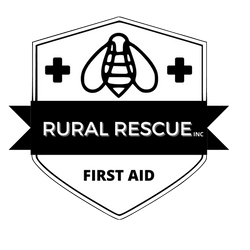Cold water immersion is an incident that is most commonly thought to be synonymous with hypothermia. But did you know that there are 3 other stages to Cold water immersion that can be life-threatening before someone's body reaches the state of hypothermia? Understanding these stages and how they effect the human body can help you if you ever end up in this situation or come across someone who has.
First we need to identify what cold water is. Did you know that the temperature of all bodies of water in Canada could cause a cold water immersion situation? Obviously the speed at which your body will freeze and succumb to a hypothermic state depends on the temperature of the water, but it is important to understand that it doesn't only occur when someone falls through the ice into a freezing pond.
Stage 1: The first stage your body enters after being plunged into cold water is Cold Shock Response. In this stage your body reacts to the initial shock of the cold water causing you to gasp for breath and flail your arms. In this first stage if you are unable to catch your breath and stop the erratic movements it can be life-threatening. 20% of people actually die in the first 60 seconds of falling into cold water.
Stage 2: If you survive the Cold Shock Response your body moves into Full Body Incapacitation. In this stage your heart rate begins to slow lowering your blood pressure and your extremities begin to freeze. In an attempt to keep your organs and core warm your blood vessels constrict and reduce the blood flow to your arms and legs. This decrease in blood results in limbs beginning to freeze and diminishes your ability to move as your nerves slow down and freeze as well. In this stage people have 10-15 minutes of meaningful movement where they can try to swim or pull themselves out of freezing water before they are unable to effectively move. If you are unable to remove yourself from the water during this stage of meaningful movement it is imperative that you actually freeze yourself to something to stay afloat; ie your arm to the ice.
Stage 3: Circum-Rescue Response is the stage a person enters if they are rescued once their body has begun to freeze. In this stage they are extremely fragile as their heart rate and blood pressure will be irregular which can cause fainting, V-Tach, and cardiac arrest. It is at this point that most people enter the fourth stage of hypothermia as well. Join us next week for our YouTube video and blog post on what happens when our body enters a hypothermic state and how to treat someone in this state.

